Cereal is a go-to breakfast for many households; it’s quick and easy to make in the morning and most of the time, it's pretty tasty. But is it the best choice to make?
We all know the importance of eating a healthy breakfast to support a balanced diet, but it can be tricky to know exactly what that means. I spoke to Laura Bosman, content manager at the European Food Information Council, to find out what we should look for in our breakfast cereals, and why we should focus on wholegrain and fibre content. Below, I've also listed 10 options for you which are great choices for weight loss or a healthy change.
What are wholegrains?
Laura says: "Wholegrains are grains that still contain all three parts of the grain kernel. These include:
The bran: A fibre-rich outer layer.
The germ: The nutrient-packed core, rich in vitamins and minerals.
The endosperm: The central part, which provides carbohydrates and proteins.
Unlike refined grains, wholegrains keep all these components, making them far more nutrient-dense. Examples of wholegrains include oats, whole wheat, barley, whole rye, brown rice, red rice, wild rice, buckwheat, and millet. For detailed information about each type of wholegrain, including how to cook and store them, you can take a look at the Switch to Wholegrainswebsite for a useful guide."
What are the benefits of wholegrains?
"Wholegrains are incredibly beneficial for your health," Laura says. "They’re an excellent source of fibre—essential for digestion—which many people don’t get enough of. The recommended daily intake is 25 grams, and wholegrains can help you meet that goal.
Wholegrains have also been shown to reduce the risk of chronic diseases. For example:
Eating 50 grams of wholegrains daily is linked to a 25% lower incidence of type 2 diabetes.
There’s a 20% reduced risk of cardiovascular mortality.
Wholegrains are associated with a 12% reduction in cancer mortality and a 15% decrease in total mortality.
By including more wholegrains in your diet, you lower your risk of serious illnesses like cardiovascular disease, colorectal cancer, and type 2 diabetes."
What should we look for on food labels for the best cereal for weight loss?
"Unfortunately, there's not very clear guidelines in the UK about the labelling of wholegrain food," Laura explains. "So it's best to check the ingredients list and look if the word whole is mentioned before the name of the cereal or on the label, and ideally this should be like near the beginning of the list, such as whole wheat, or oats, or rye. And another practical tool could be to look at the nutrition on the table, and then to compare the amount of fibre that's there to the amount of carbohydrates. So for every 10 grams of carbohydrates, you should see at least one gram of fibre. So for example, if a bread has 45 grams of carbohydrates, it should have at least 4.5 grams of fibre. Now, you know, it's a more nutritious whole grain product."
Examples of wholegrain breakfast cereal
When it comes to breakfast, Laura says that a high fibre, lows sugar and salt, and wholegrain option is best. That sounds like a lot of things to look for in one food, but it's surprisingly simple. Remember to check the labels for fibre content and ingredients, and Laura makes the following suggestions:
"You can make a bowl of porridge whole grain oats, and top it with fresh or frozen berries. Frozen fruit also counts towards your five a day, so that can be a very easy choice to have on hand to save time. You can then top it with some nuts and seeds, for example.
Or you can have whole grain toast with eggs and maybe some cherry tomatoes or spinach, Or yogurt, and also top with some fruits and nuts."
Is Weetabix a wholegrain food?
Yes - containing 95% wholegrain wheat, Weetabix (or its supermarket counterparts) are a good breakfast choice. They also contain a lot of fibre. In fact, all of the cereal list below are high in fibre and contain whole grain, with the exception of Cornflakes.
Best cereal for weight loss at a glance
As the NHS says, eating too much sugar can contribute to weight gain and health problems, including tooth decay and high blood pressure. If you’re looking to switch things up from your everyday cereal, we’ve also got a ton of great low-calorie breakfast ideas too. But for now, here are the best cereals to support you on your weight loss journey.
Best cereals for weight loss
Best cereal for weight loss
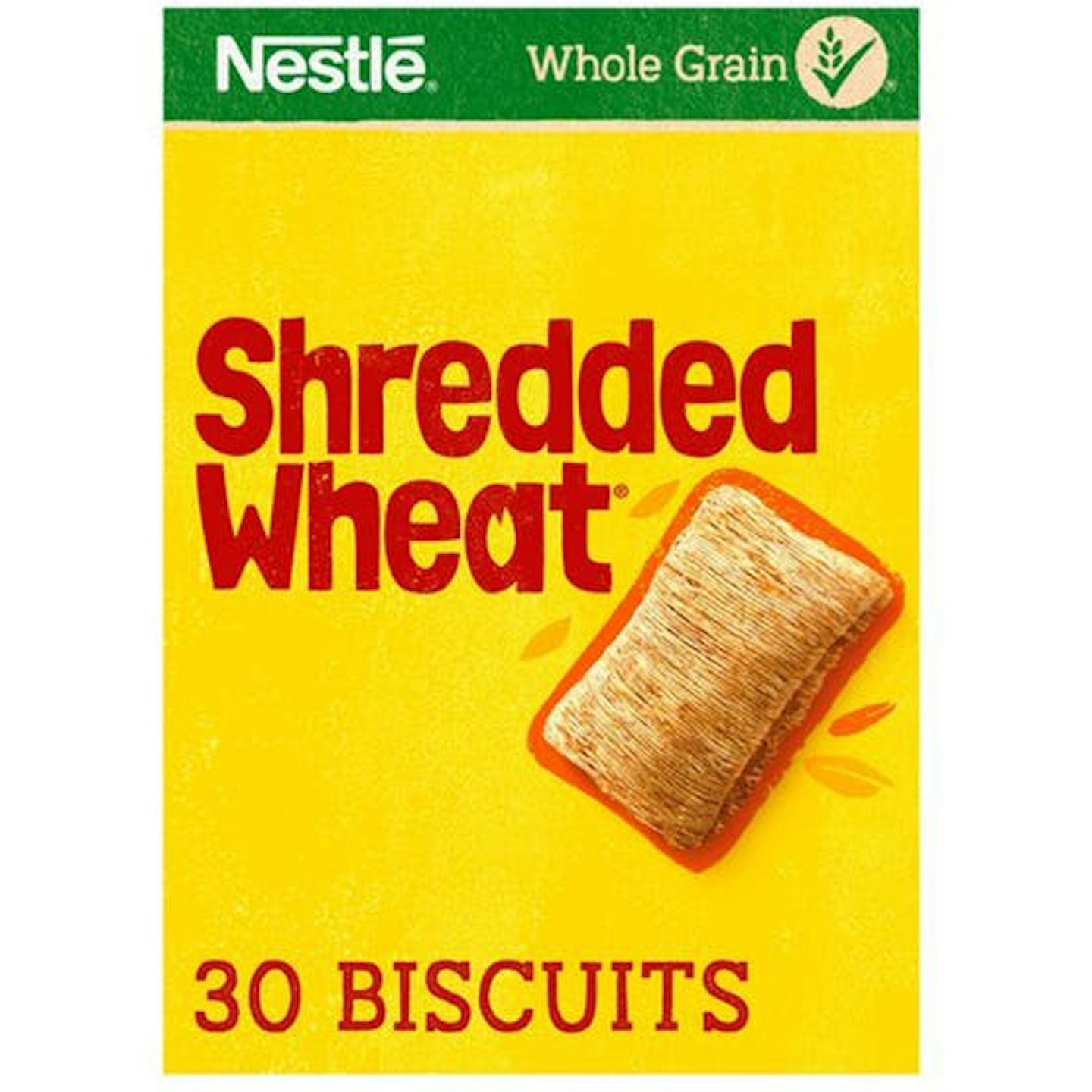
www.tesco.com
A brilliant source of fibre and protein, with no added sugar and low in calories, Shredded Wheat is the perfect cereal to help you on your health journey, whatever your goal may be. Personally speaking, I would have one biscuit crushed on top of a bowl of yogurt and fruit, or you can have two with milk. They're great for adding crunch to softer foods - I've even known people to spread cottage cheese on them!
Nutritional information per 45g (two biscuits):
Energy: 162kcal
Fat: 1.0g
Of which saturates: 0.2g
Carbohydrate: 30g
Of which sugars: 0.3g
Protein: 6g
Fibre: 6g
Salt: 0.02g
Pros
- No added sugar
- High in fibre
Cons
- Some people say they taste a bit bland
Most versatile cereal for weight loss
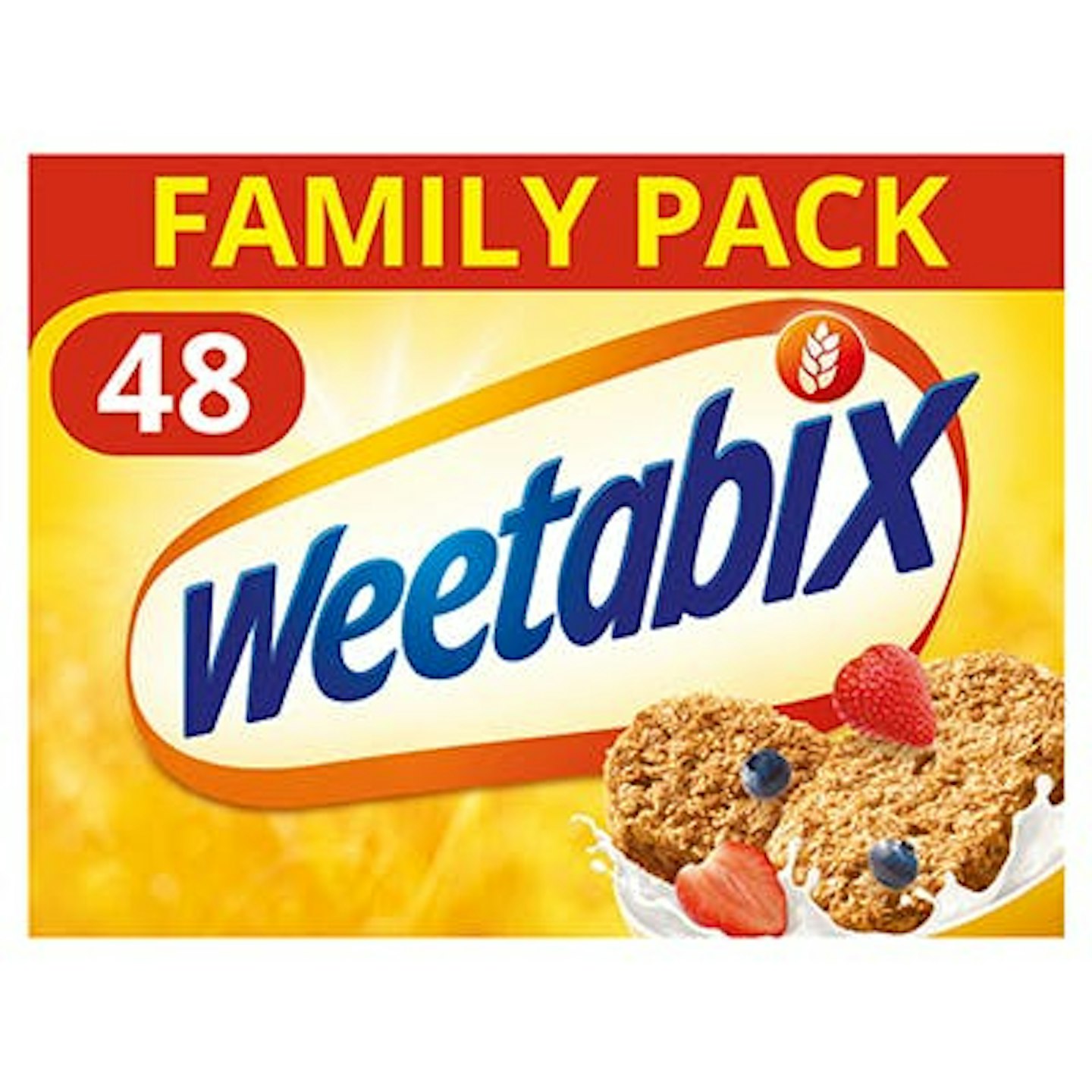
www.sainsburys.co.uk
Weetabix are a staple in many households. They're high in fibre (which can help you feel fuller for longer), extremely low in sugar and salt, and contain a decent amount of carbs to help fuel you throughout the day. They're really versatile, too. You can crush them on top of yogurt, have them hot (with milk or water), spread them with cream cheese and top with cucumber, you can even crush them and use as a base for cheesecake!
Nutritional information per two Weetabix:
Energy: 136kcal
Fat: 0.8g
Of which saturates: 0.2g
Carbohydrate: 26g
Of which sugars: 1.6g
Protein: 4.5g
Fibre: 3.8g
Salt: 0.10g
Pros
- Very versatile - can be used in a lot of different ways
- Taste great
Cons
- Quite pricey - supermarket own brands may be cheaper
Best muesli for weight loss
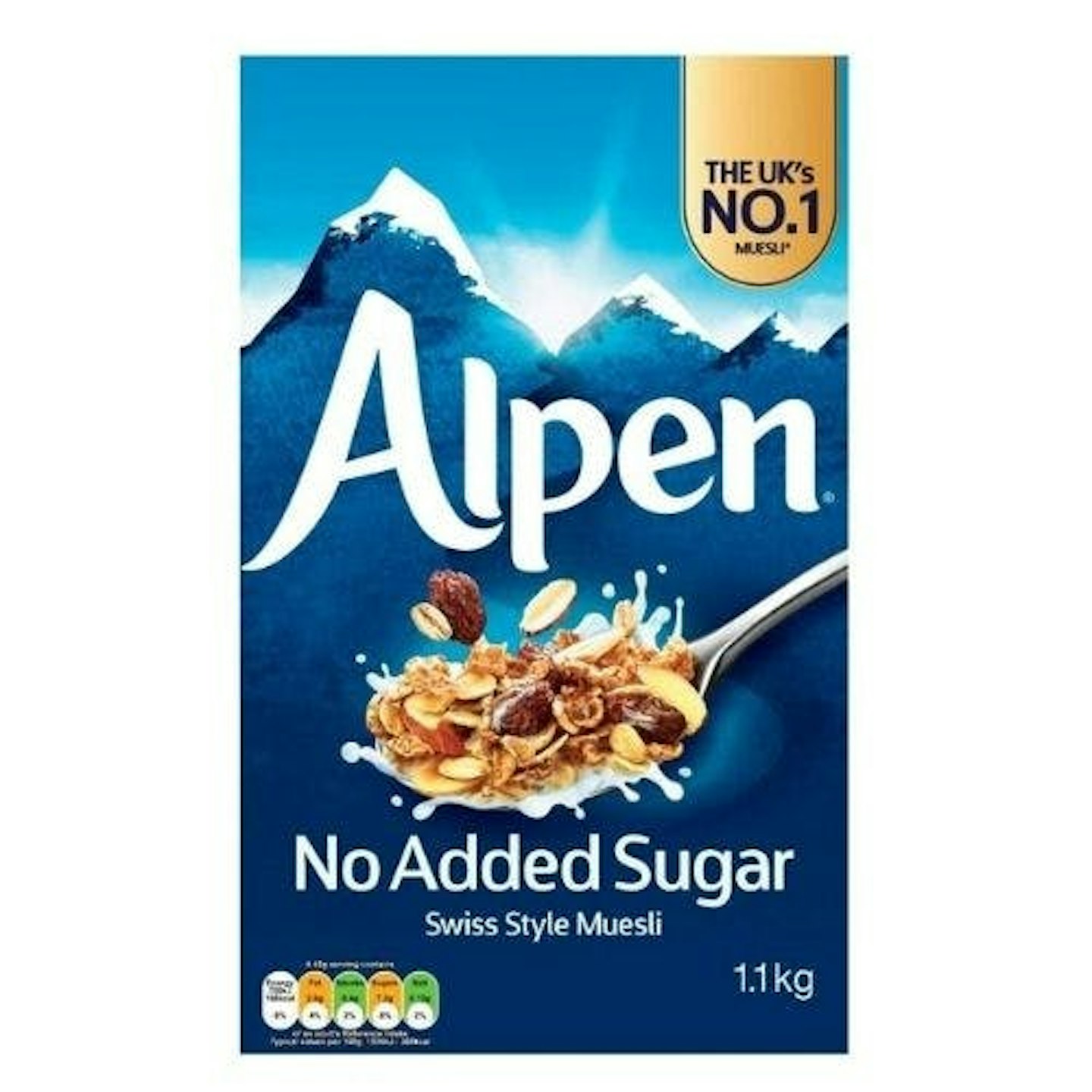
A trusty weight loss cereal favourite, Alpen is known for its mouth-watering range of wholegrain mueslis, oat granolas and bars. This Alpen No Added Sugar Muesli - 1.1kg is a great sugar-free option. With the added bulk of nuts and raisins, this makes a great topper for fruit or yogurt, giving added crunch, healthy fats (from the nuts) and fibre.
Nutritional information per 45g serving:
Energy: 166kcal
Fat: 2.6g
Of which saturates: 0.4g
Carbohydrate: 28g
Of which sugars: 7.2g
Protein: 5.4g
Fibre: 3.7g
Salt: 0.13g
Pros
- Added fruits and nuts
- No added sugar
Cons
- Portion size (with milk) is fairly small - try using it as a topping instead
Best for the whole family to enjoy
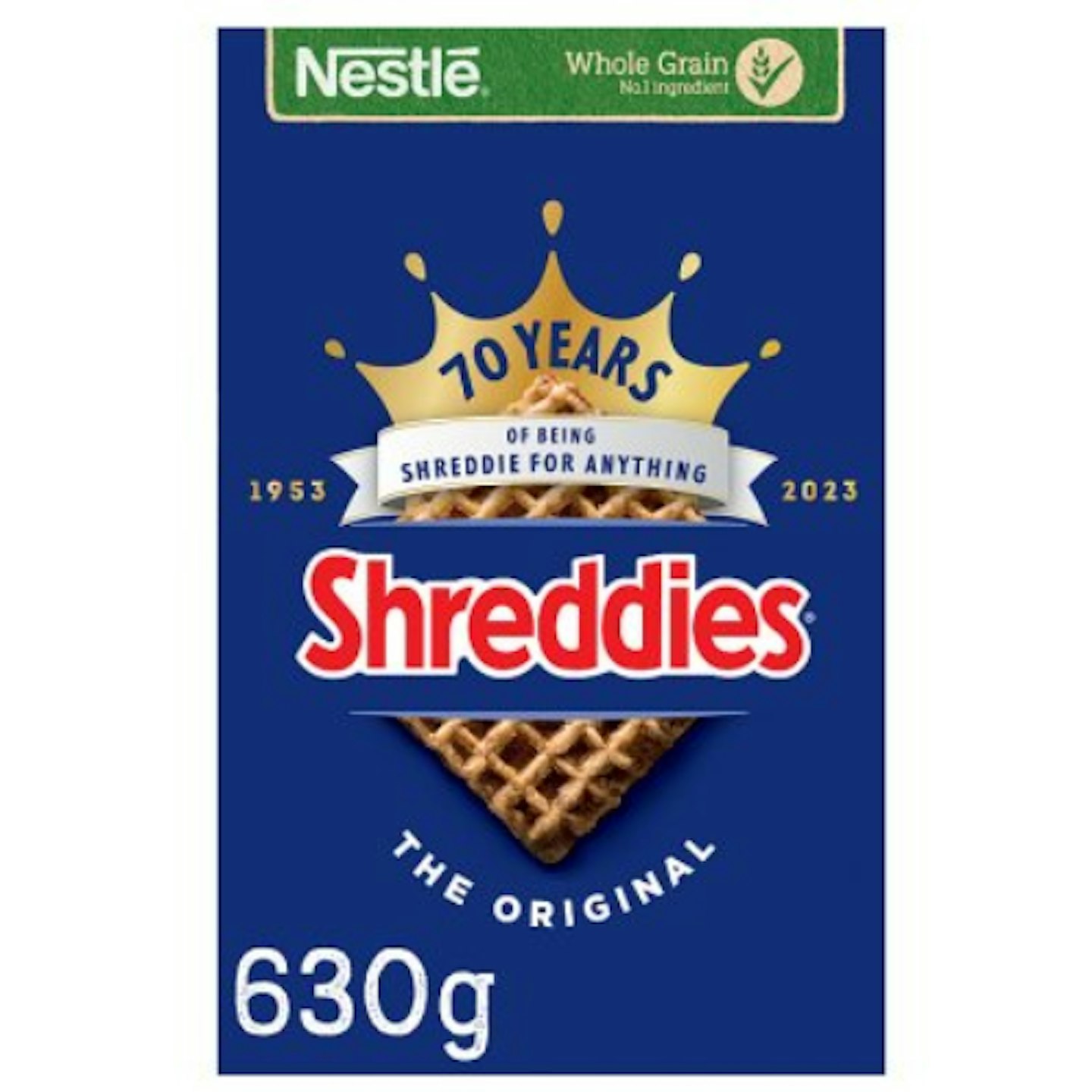
Not only do Shreddies taste great (and are usually a hit with even the fussiest of eaters) they're high in fibre and protein but low in calories. Want to make Shreddies a little more exciting? Add some sliced banana or a handful of your favourite fruit, topped with semi-skimmed milk or plant-based milk.
Nutritional information per 40g:
Energy: 145kcal
Fat: 0.7g
Of which saturates: 0.1g
Carbohydrate: 28g
Of which sugars: 5g
Protein: 4.9g
Fibre: 4.3g
Salt: 0.29g
Pros
- Great for kids
- Good with fruit
Cons
- Quite dense meaning you don't get many in a portion
Best oats for weight loss
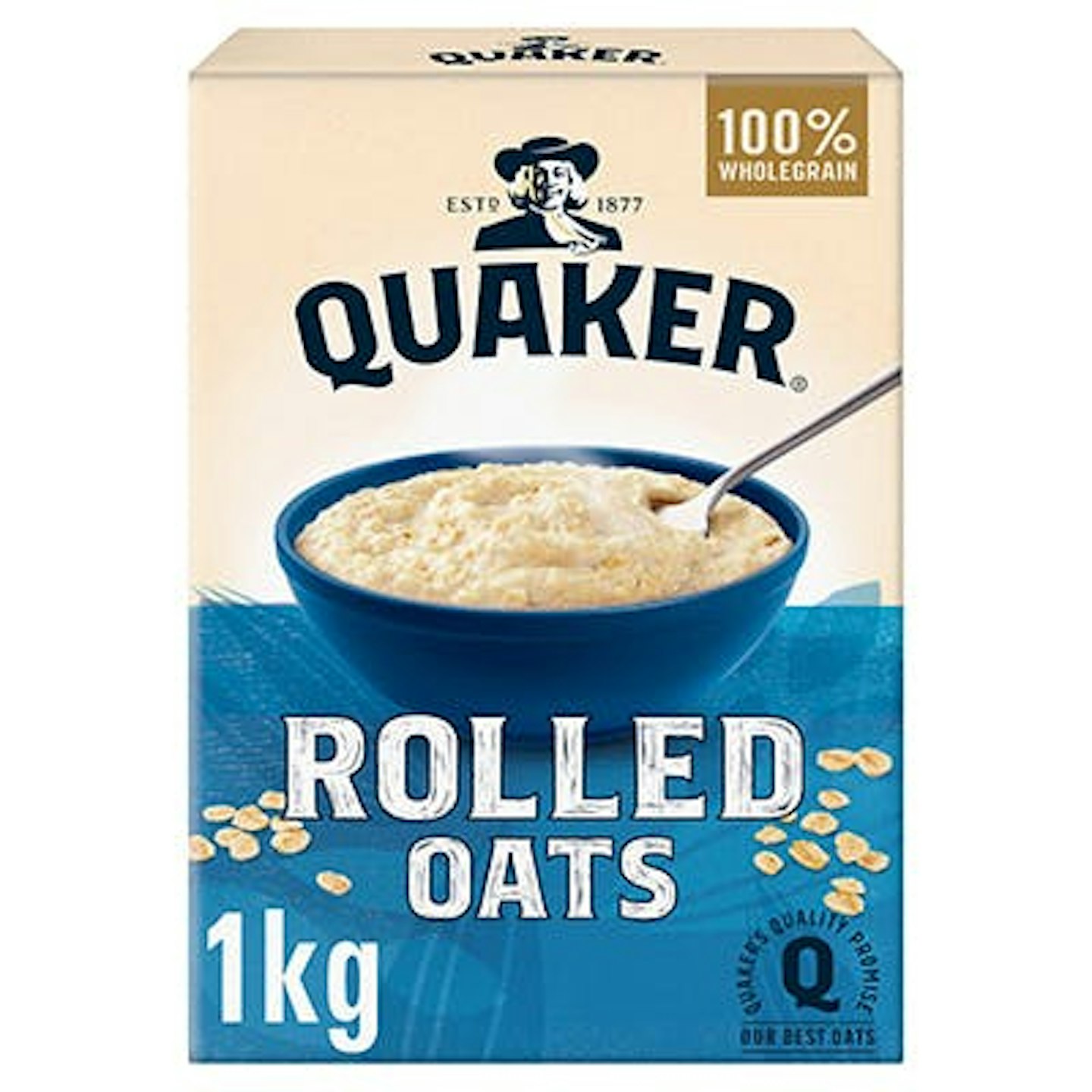
www.sainsburys.co.uk
Porridge is a brilliant heart-healthy breakfast. Oats are wholegrain and contain beta-glucan, a soluble fibre that helps to lower your cholesterol. These Quaker Porridge Oats are very filling too, which will help you to consume fewer calories throughout the day. Pair with some form of protein - an egg white omelette, for example, or stir into yogurt for some tasty, protein-filled overnight oats.
Nutritional information per 40g serving:
Energy: 150kcal
Fat: 3.2g
Of which saturates: 0.6g
Carbohydrate: 24g
Of which sugars: 0.4g
Protein: 4.4g
Fibre: 3.6g
Salt: 0g
Pros
- Versatile - use to make porridge, overnight oats, or use for baking
- Simple to prepare
Cons
- Can taste a bit bland without adding fruit or honey
Best tasting cereal for weight loss
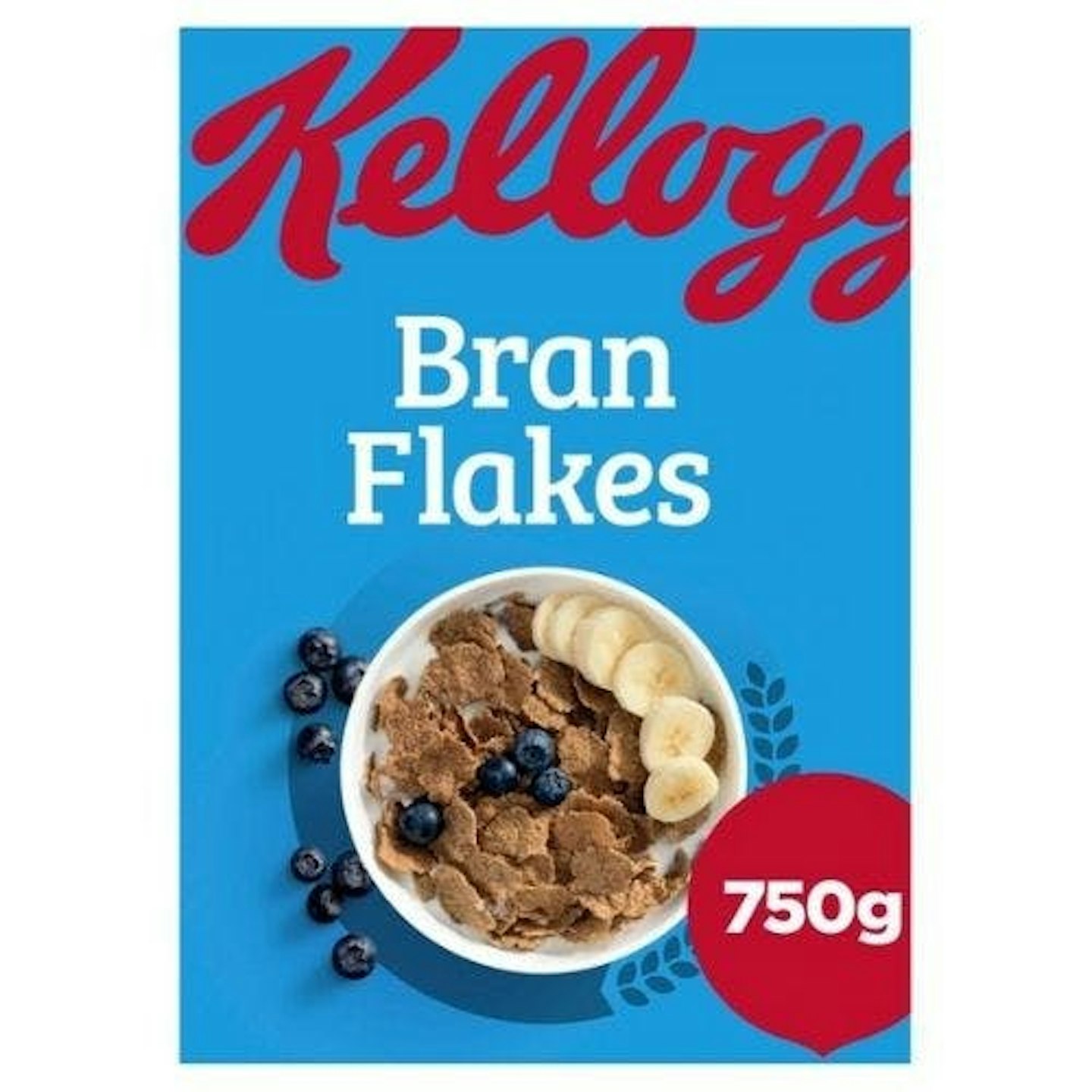
www.ocado.com
These are by no means bland flakes! More like a breakfast cereal waiting to be customised; think everything from bananas and berries to yoghurt. I love bran flakes for that exact reason - their versatility. They're a little higher in sugar than other options on this list, so I would keep the portion small and bulk out with fruit and milk or yogurt.
Nutritional information per 30g serving:
Energy: 108kcal
Fat: 0.8g
Of which saturates: 0.1g
Carbohydrate: 20g
Of which sugars: 4.2g
Protein: 3.6g
Fibre: 4.2g
Salt: 0.20g
Pros
- Perfect for adding to yogurt and fruit
- Taste great
Cons
- A little higher in sugar than other options
Best on a budget
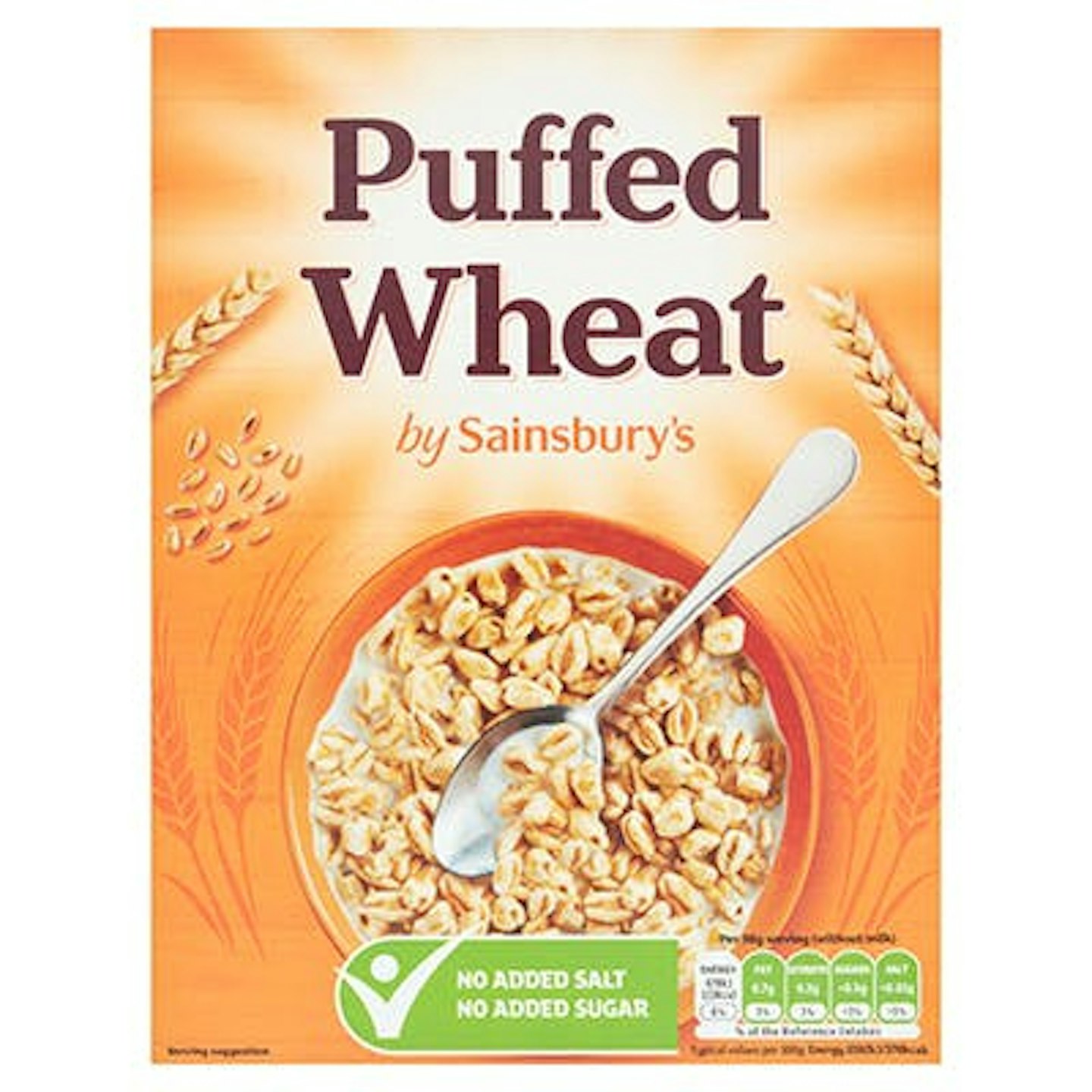
www.sainsburys.co.uk
If you're a fan of Sugar Puffs, then here's a healthy alternative: Puffed Wheat. The same cereal without any sugar, puffed wheat is also low in salt, fat, and calories. It's a great budget choice as it's so cheap to buy.
It doesn't taste all that great, but a 30g portion is huge as it's so light, so if food volume is important to you, have some with a banana or berries and milk.
Nutritional information per 30g serving:
Energy: 113kcal
Fat: 0.7g
Of which saturates: 0.2g
Carbohydrate: 20.9g
Of which sugars: 0.5g
Protein: 4.4g
Fibre: 2.8g
Salt: 0.01g
Pros
- Huge portion as it's so light
- Very low calories
Cons
- Bland
Best porridge for a sweet tooth
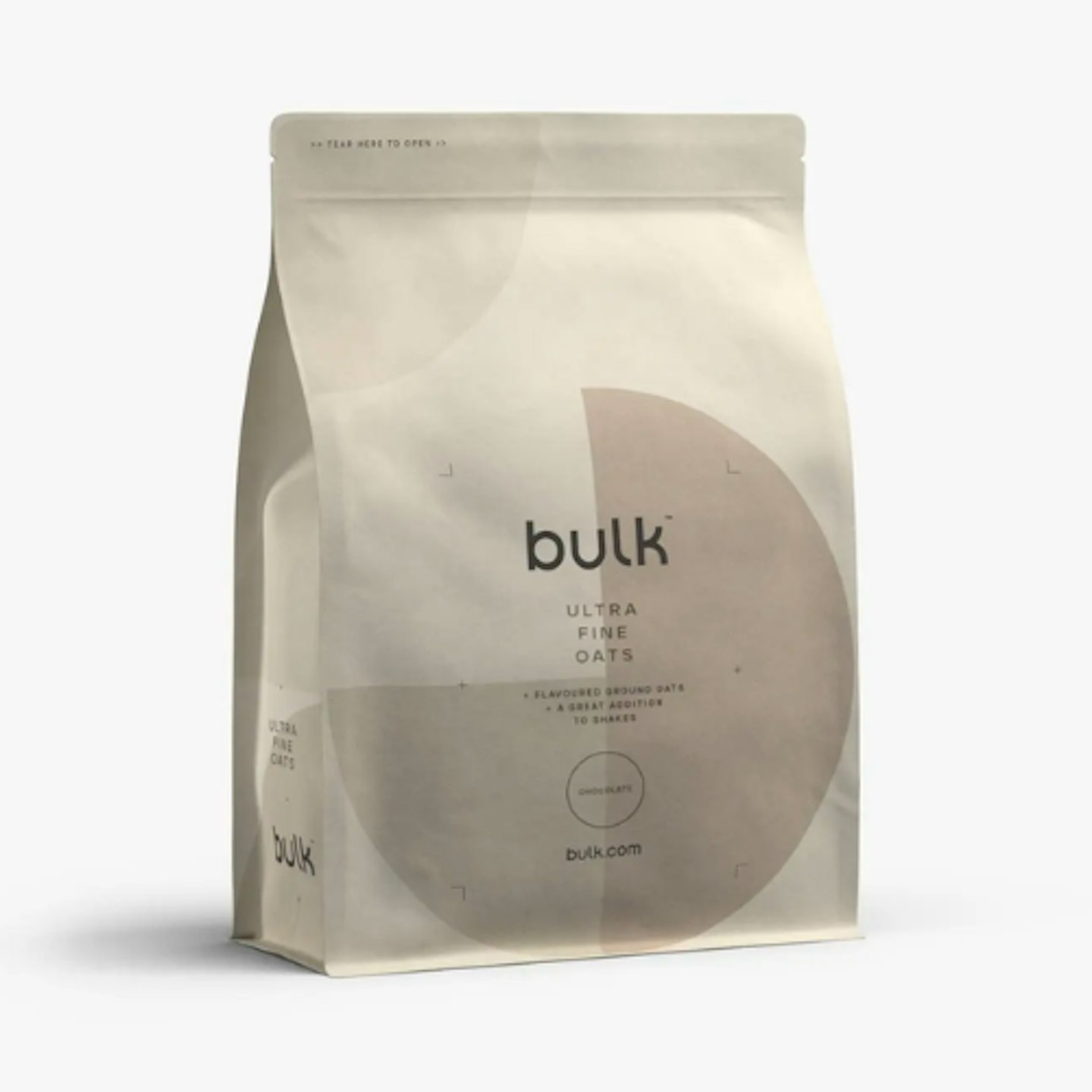
www.bulk.com
Anyone with a sweet tooth and a love of chocolate will be a fan of this porridge from Bulk. Per 100g you get 11g of protein to ensure you're kept feeling full for longer and they don't contain too much sugar, fat or salt. Plus there are other delicious flavours of Bulk Ultra Fine Oats including vanilla, butterscotch, and apple and cinnamon.
My top tip would be to have this with some fruit for a filling breakfast, or half a portion alongside another source of protein, such as scrambled eggs.
Nutritional information per 50g serving:
Energy: 185kcal
Fat: 2.6g
Of which saturates: 0.5g
Carbohydrate: 34g
Of which sugars: 0.4g
Protein: 5.4g
Fibre: 2.8g
Salt: 0.03g
Pros
- Good source of protein and carbs
- Comes in lots of different flavours
Cons
- Slightly more processed than other options on the list
Best granola for weight loss
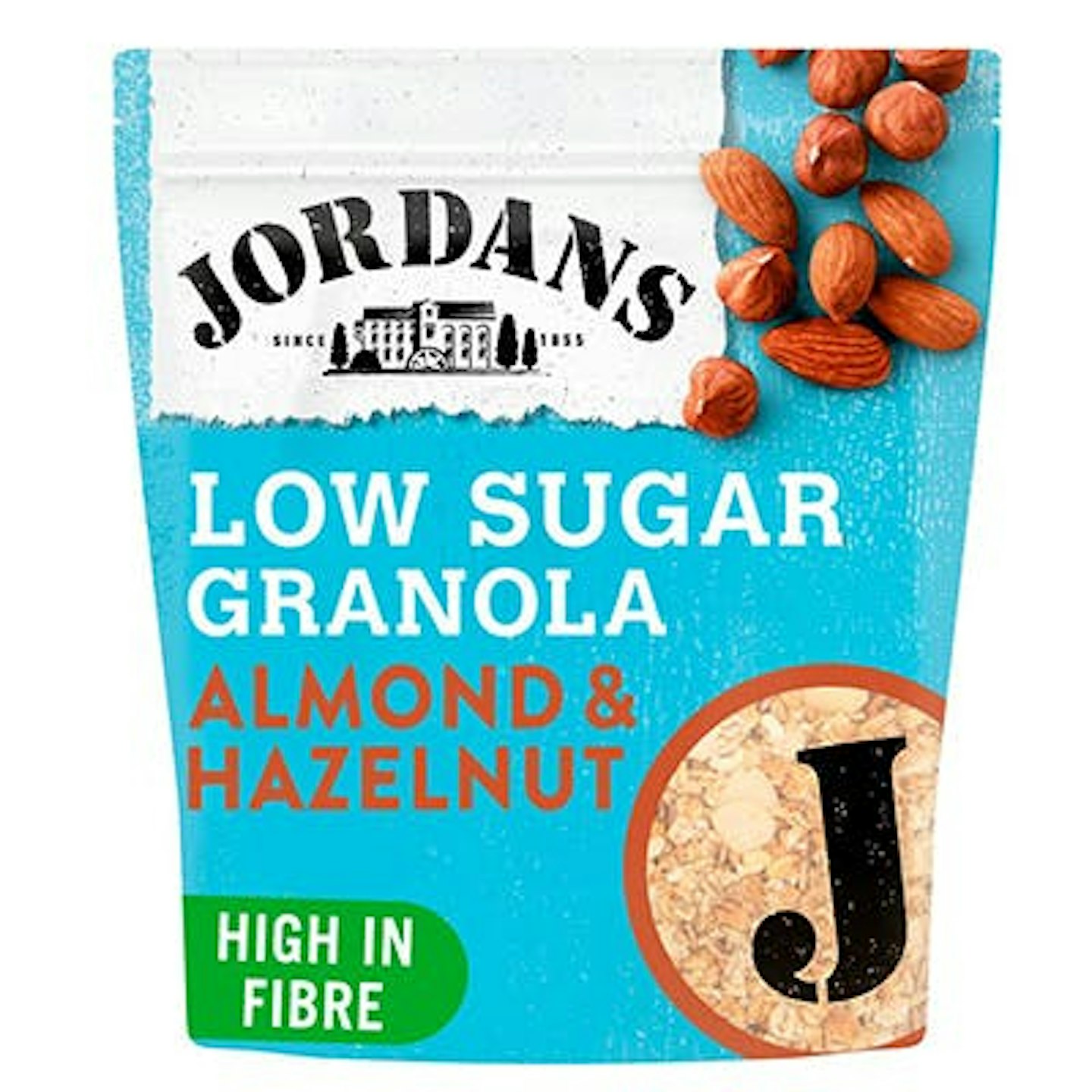
www.ocado.com
It can be hard to find a granola that isn't full of sugar or has a high-fat content. This Jordan's Low Sugar Nut Granola has no added salt and less than five per cent sugar. The fat content is still a little high, due to the nuts, so watch the portion size. Nuts contain healthy fats so they are good for you, to an extent!
Watch the portion size - personally I use granola to sprinkle on yogurt rather than eating a big bowlful at a time.
Nutritional information per 45g serving:
Energy: 201kcal
Fat: 7.2g
Of which saturates: 1.1g
Carbohydrate: 25.1g
Of which sugars: 1.3g
Protein: 7.2g
Fibre: 3.6g
Salt: 0.01g
Best classic cereal
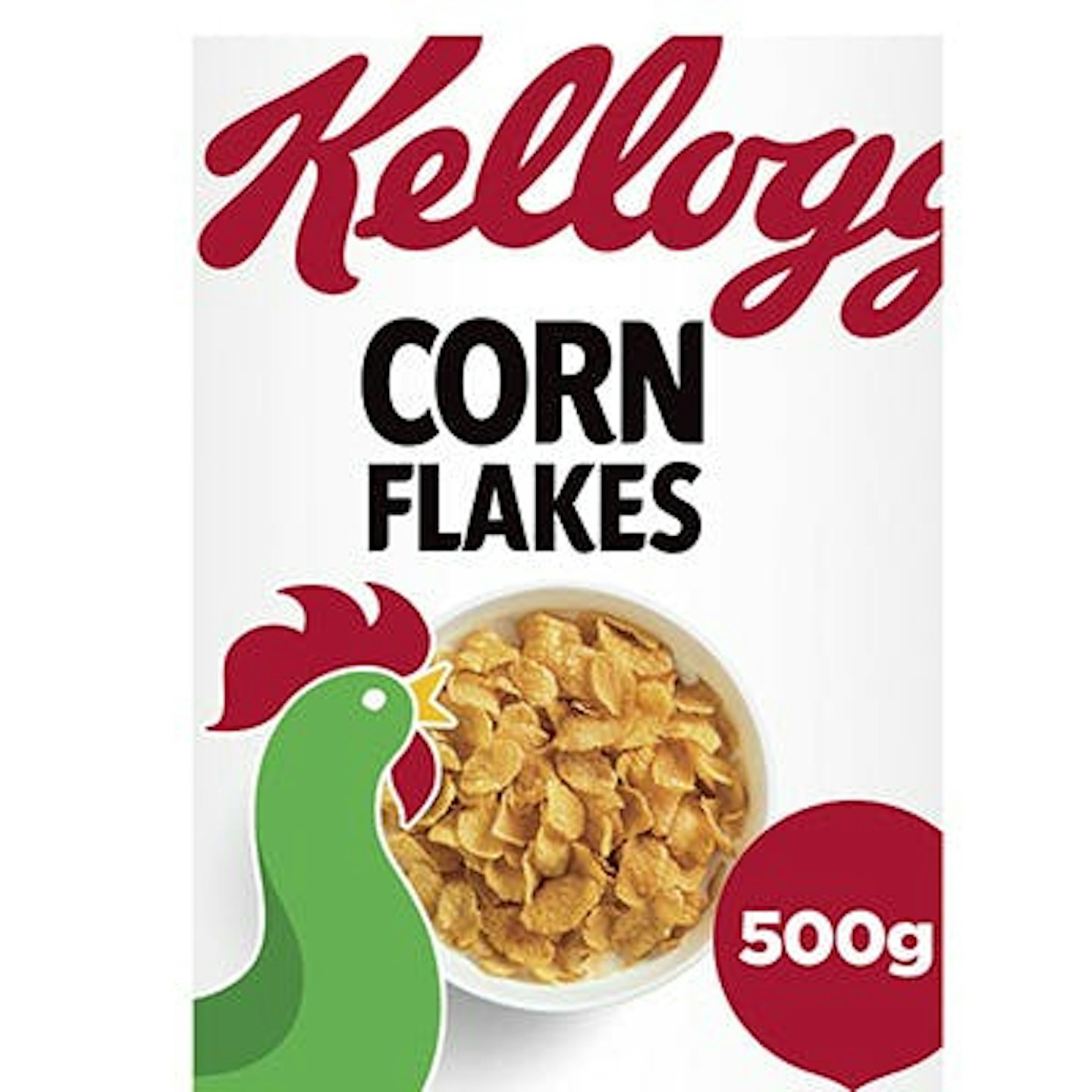
www.ocado.com
This iconic cereal has a surprisingly good nutritional value. They're not so high in fibre, but ok for an occasional breakfast. Or - as a special treat - make cornflake cakes with the grandchildren! Although not a 'healthy' choice, it's still a better option than cake!
Nutritional information per 30g serving:
Energy: 113kcal
Fat: 0.3g
Of which saturates: 0.1g
Carbohydrate: 25g
Of which sugars: 2.4g
Protein: 2.1g
Fibre: 0.9g
Salt: 0.34g
Pros
- Good for making cornflake cakes!
- Good for the whole family
Cons
- Relatively high in sugar
Best cereal for weight loss FAQs
What is the best healthy cereal for weight loss in the UK?
After long deliberation, Nestle's Shredded Wheat takes the crown for the best cereal for weight loss or just a healthy change. We chose this Nestle staple because it has next to no sugar, salt and fat. It's also high in fibre, protein and carbs. Plus, you're able to customise this breakfast to your taste with toppings that are good for you. However, watch out for versions that contain added fruit, honey or bits of chocolate. After all, these added ingredients increase sugar and fat content, taking away from their nutritional value.
Understanding nutritional information
According to the NHS website, "You can use the per 100g information on the nutrition label to identify breakfast cereals that are:
High in sugar, fat or salt - "High in sugar: more than 22.5g of total sugars per 100g, high in fat: more than 17.5g of fat per 100g and high in salt: more than 1.5g of salt per 100g."
Low in sugar, fat or salt - "Low in sugar: 5g of total sugars or less per 100g, low in fat: 3g of saturated fat or less per 100g and low in salt: 0.3g of salt or less per 100g."
If you follow this advice as well as teaming it with exercise (follow our guide on how to keep fit at home), then you should feel the results in yourself. Remember it doesn't matter about the numbers on the scale, it's all about living better.
Laura Bosman is Content Manager for the European Food Information Council. Laura has a BSc and MSc in Nutrition and Health from Wageningen University in the Netherlands and specialised in nutritional and public health epidemiology. She also studied public health at the University of Eastern Finland to strengthen her foundation for understanding of public health and related research.
Becky Fuller is a senior digital writer for Yours.co.uk. She is also a fully qualified personal trainer and strength coach, specialising in fitness and wellbeing for over 50s. Prior to joining Yours, Becky was a fitness writer for Saga, and a freelance entertainment and theatre journalist. Becky is passionate about helping people to move well and discover the many benefits of strength training.

